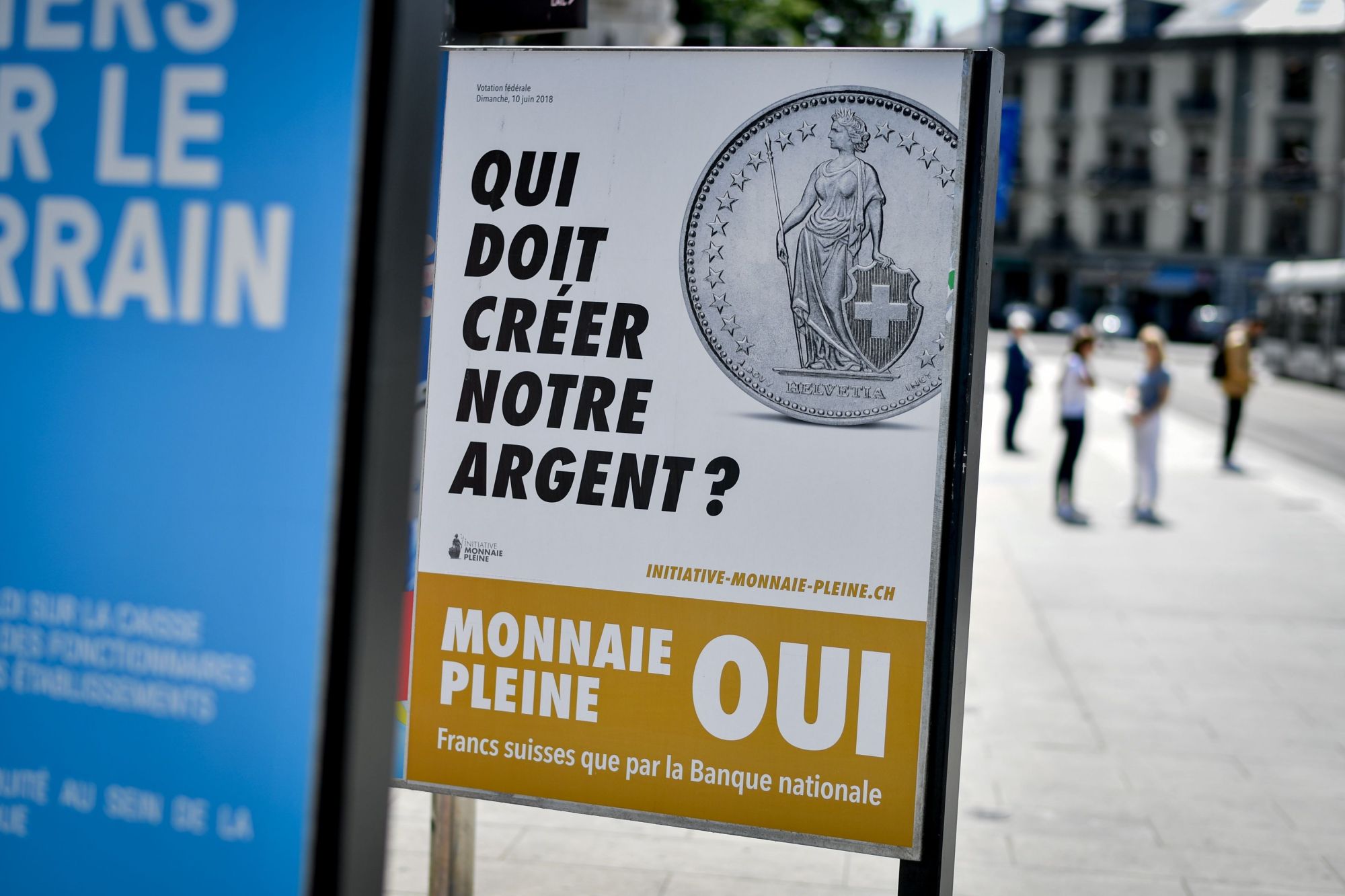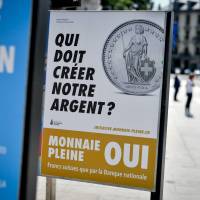A radical plan to upend Switzerland's financial landscape by barring commercial banks from creating money has been defeated after failing to win a majority of support from the Swiss cantons, Swiss broadcaster SRF said Sunday.
The measure needed to secure a majority of Switzerland's 26 cantons as well as a simple majority of voters to be successful.
If successful, Switzerland would have been the first country in the world to introduce a system that would have barred commercial banks from creating money each time they made a loan.
Polls closed at around 1100 GMT in the nationwide referendum on the Sovereign Money Initiative, known as Vollgeld or "real money" in German.
The initiative, called under Switzerland's system of direct democracy after gathering more than 100,000 votes, wanted to make the Swiss National Bank (SNB) the only authority in the country authorized to create money.
If it had passed, the plan could have had repercussions beyond Switzerland's borders by removing a practice which underpins most bank lending in the world.
Contrary to common belief, most money in the world is not produced by central banks but is instead created by commercial lenders when they lend beyond the deposits they hold for savers.
Supporters had said their plan would make the Swiss financial system more secure and the money in people's accounts safe from bank runs.
But opponents, including the SNB, the Swiss government and the banks, argued it was a dangerous experiment which could have damaged the Swiss economy.




















With your current subscription plan you can comment on stories. However, before writing your first comment, please create a display name in the Profile section of your subscriber account page.